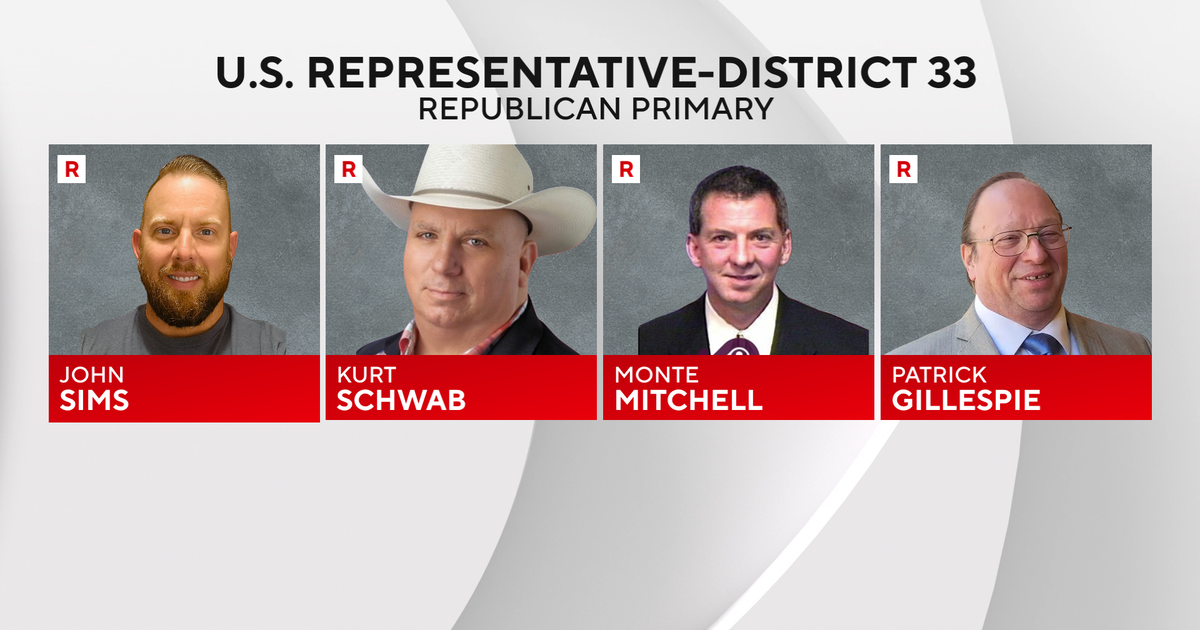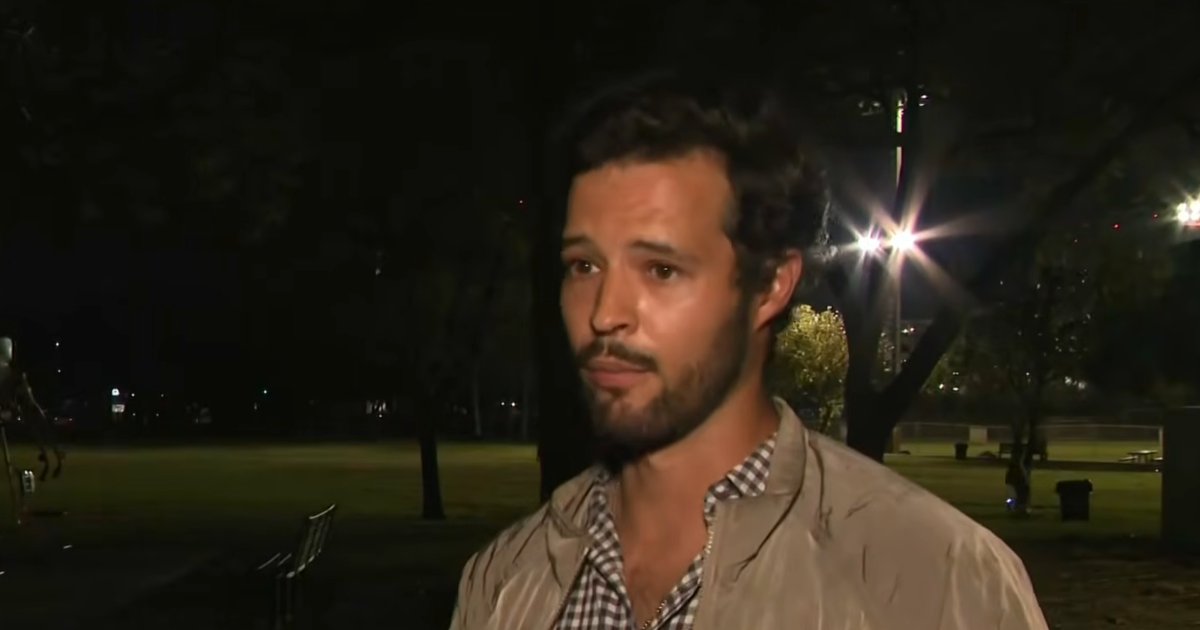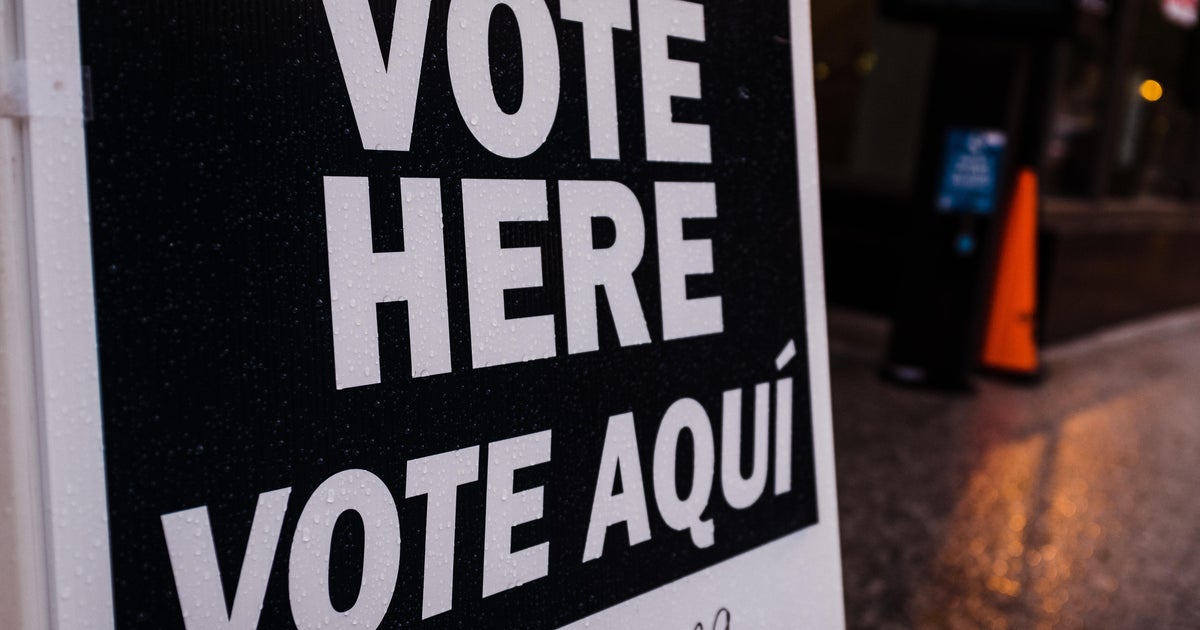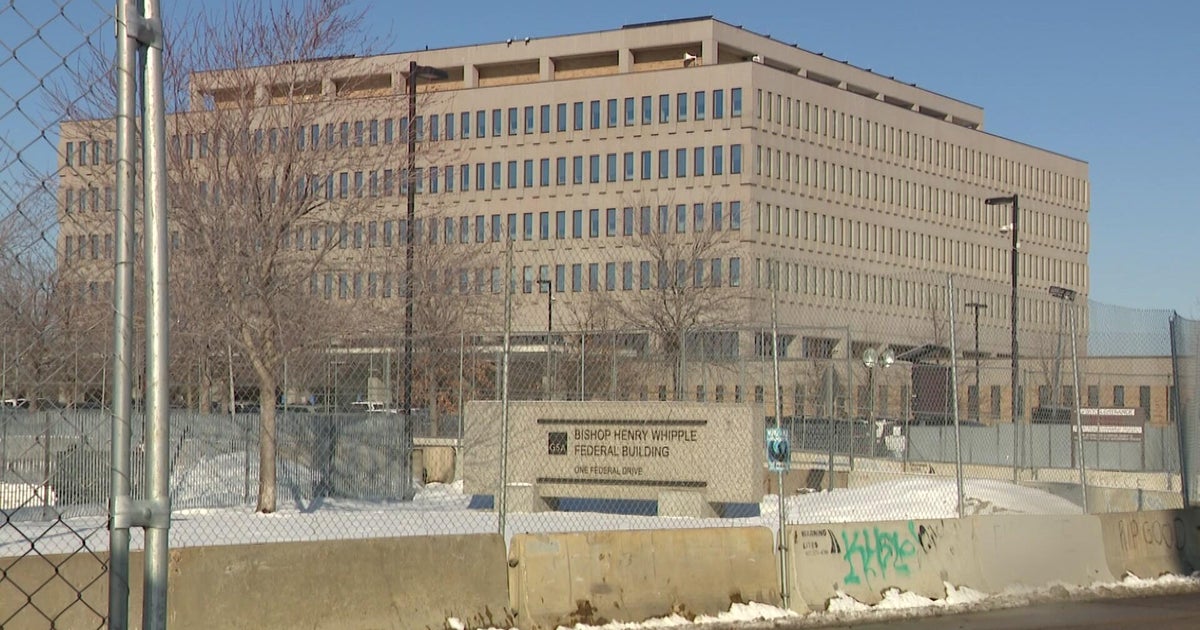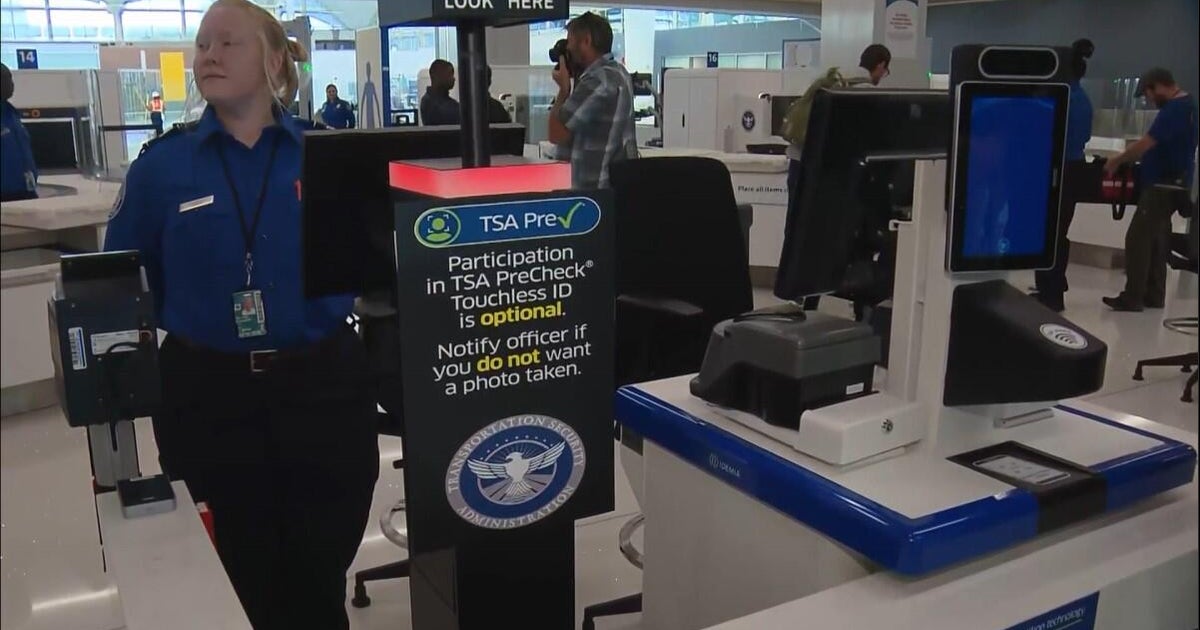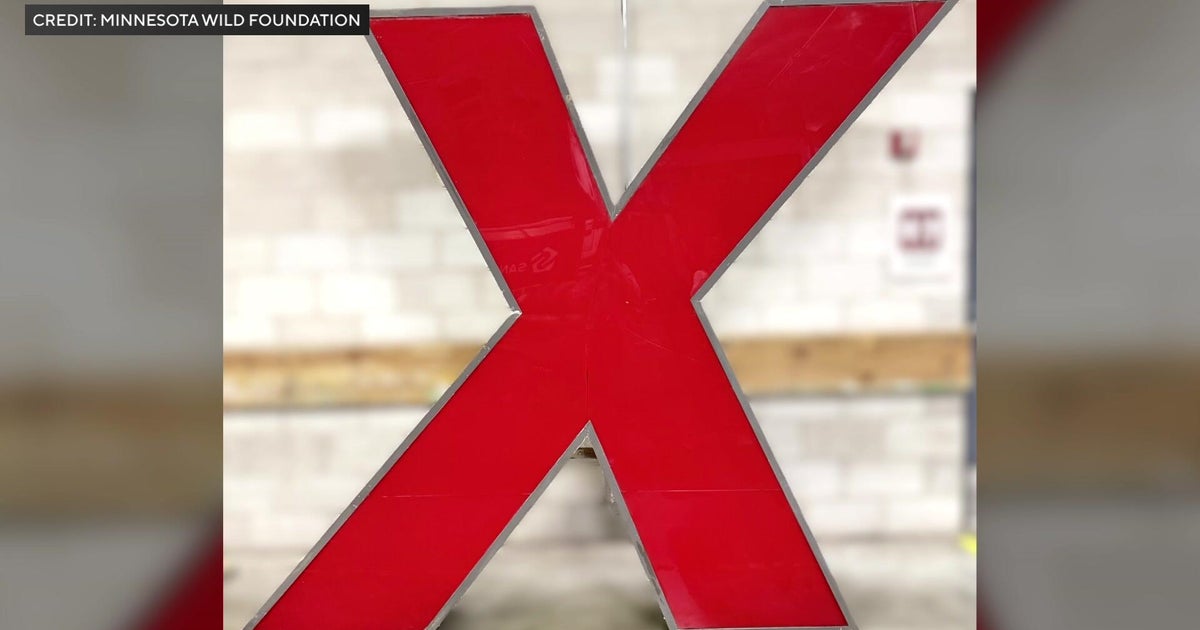Gov. Ron DeSantis Signs Florida's Controversial Voting Bill
WEST PALM BEACH (CBSMiami/AP) -- Gov. Ron DeSantis signed into law Senate Bill 90, Florida's controversial voting bill which critics say curbs access to mail-in voting in the state.
In signing the bill during an appearance on "Fox & Friends" early Thursday morning, the Florida Republican highlighted provisions of the bill including stricter voter ID requirements for voting by mail, creating limits on who can pick up and return a voter's ballot, and banning private funding for elections.
"Me signing this bill says: Florida, your vote counts, your vote is going to be cast with integrity and transparency and this is a great place for democracy," DeSantis said after signing the bill.
He was flanked by a small group of GOP legislators in Palm Beach County. Other media organizations were shut out.
Immediately after the signing, opponents filed a lawsuit alleging that the measure is unconstitutional.
The coalition of opponents, including the League of Women Voters of Florida, Black Voters Matter Fund Inc. and the Florida Alliance for Retired Americans, filed a lawsuit in federal court in Tallahassee, contending that the bill violates First Amendment rights and would place an "undue burden on the right to vote." The lawsuit named as defendants Secretary of State Laurel Lee, Attorney General Ashley Moody and county supervisors of elections from throughout Florida.
"SB 90 does not impede all of Florida's voters equally. It is crafted to and will operate to make it more difficult for certain types of voters to participate in the state's elections, including those voters who generally wish to vote with a vote-by-mail ballot and voters who have historically had to overcome substantial hurdles to reach the ballot box, such as Florida's senior voters, youngest voters and minority voters," the lawsuit said.
"The law is being made to make it harder to vote," said Broward Supervisor of Elections
Joe Scott.
Scott said he worries about the added cost for supervisor offices.
"Anything we do to have to expend more resources means more tax money having to be
used. And there wasn't a problem in the last election," said Scott.
Greg Dyer said he favors the new law because he describes the last election as a free for all.
"They were letting anybody vote and that's wrong," he said.
Hakim G. said he was dismayed about the new law. "It shows you what people will do to keep power. It goes against democracy. We should be extending voting rights," he said.
Miami Dade Supervisor of elections Christina White said, "We will spend the coming weeks reviewing policies and procedures to ensure compliance with the new state laws. The Miami -Dade Elections Department remains committed to making voting as convenient and accessible
as possible, following the new requirements established by our lawmakers."
Joe Scott says he's looking at putting a reminder on mail in ballots so people know to sign up again fora mail-in ballot and he's considering opening additional supervisor satellite offices so drop boxes are plentiful.
DeSantis and GOP lawmakers argued that the bill, which addresses issues such as voting by mail, is needed to ensure secure elections. But Democrats and many voting-rights groups said the bill would suppress voting after a November election in which Democrats far outdistanced Republicans in voting by mail amid the COVID-19 pandemic.
"Florida took action this legislative session to increase transparency and strengthen the security of our elections," said DeSantis. "Floridians can rest assured that our state will remain a leader in ballot integrity. Elections should be free and fair, and these changes will ensure this continues to be the case in the Sunshine State. I'd like to thank our legislative leaders on this issue – Senate President Wilton Simpson, House Speaker Chris Sprowls, Senator Dennis Baxley, and Representative Blaise Ingoglia."
The newly signed law restricts when ballot drop boxes can be used and who can collect ballots — and how many. To protect against so called "ballot harvesting," an electoral Good Samaritan can only collect and return the ballots of immediate family and no more than two from unrelated people. Under the new rules, drop boxes must be supervised and would only be available when elections offices and early voting sites are open.
It requires that a voter making changes to registration data provide an identifying number, possibly a driver's license number or a partial Social Security Number.
The governor's signature extends a no-influence zone to 150 feet around polling places. And elections officials would have to let candidates and other observers witness some key election night moments in the ballot-handling process. Any violations could prompt hefty fines.
It also requires that every county have access to live voter turnout data, updated hourly by Supervisors of Elections (SOEs). SOEs will also be required to post, beginning at 7 p.m. on Election Day, the number of vote-by-mail ballots that have been received and the number of vote-by-mail ballots that remain uncounted. This reporting will be updated at least every hour.
"Right now, I have what we think is the strongest election integrity measures in the country," the governor said as he signed it. "We're also banning ballot harvesting. We're not going to let political operatives go and get satchels of votes and dump them in some drop box."
The bill will also prohibit private money from administering elections by prohibiting our Election Supervisors from accepting donations or grants to fund any aspect of election administration or operations.
Republicans have previously said they don't know of such problems in Florida, and elections supervisors across the state did not ask for any of the changes, warning that some of the new rules may prove cumbersome and expensive to implement.
Democrats and voter advocates have assailed the law as a blatant attempt to impede access to the polls so that Republicans might regain an advantage.
"The legislation has a deliberate and disproportionate impact on elderly voters, voters with disabilities, students and communities of color. It's a despicable attempt by a one party ruled legislature to choose who can vote in our state and who cannot. It's undemocratic, unconstitutional, and un-American," said Patricia Brigham, president of the League of Women Voters of Florida.
Democratic Rep. Charlie Crist, a former Florida governor who announced his challenge of DeSantis this week, tweeted, "This is the difference between @GovRonDeSantis and me. He locks out the public and caters to FOX News. When I was Governor, everyone was invited in — Democrats, Republicans, and Independents. And when I'm Governor again, this will be a Florida for all."
The Governor denied the signing event was done in secret.
The Society for Professional Journalists Florida chapter tweeted, "Actions like this openly defy against a free press. We condemn De Santis' office barring journalists from doing their job for the sake of good TV."
(© Copyright 2021 CBS Broadcasting Inc. All Rights Reserved. The Associated Press contributed to this report.)
